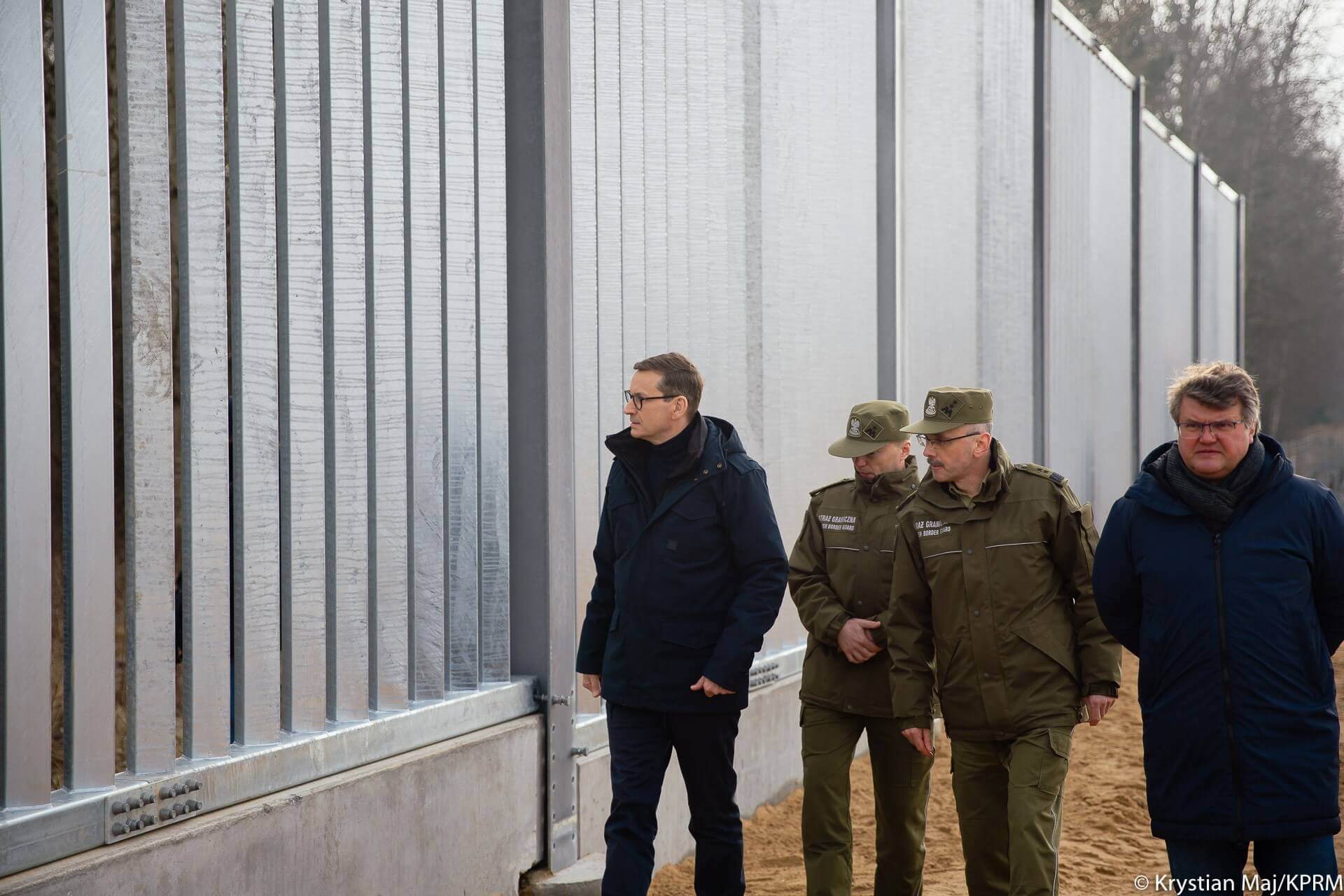Poland completed the construction of a 5.5-metre-high and 186-kilometre-long wall along its border with Belarus, less than a year after thousands of migrants attempted to enter the European Union (EU) via their boundary.
Polish Prime Minister Mateusz Morawiecki and several top security officials visited the border to mark the completion of the $407 million project. That being said, Polish authorities still need to install electronic surveillance systems along the boundary.
Two bordering regions will also lift a state of emergency that has been in place since last November.
Poland’s Prime Minister Morawiecki said today that Poland has completed the construction of its 186-km-long border wall with Belarus.
— Visegrád 24 (@visegrad24) June 30, 2022
The wall was built in less than 6 months thanks to the army working in 3 shifts 24/7 on its construction.
49 000 tons of Polish steel was used. pic.twitter.com/eD0ewut9aA
Poland justifies the construction of the wall as a means to combat Russia, of which Belarus is a close ally. Speaking at a press conference after the border visit, Morawiecki said, “The first sign of the war in Ukraine was [Belarusian President] Alexander Lukashenko’s attack on the Polish border with Belarus.”
Poland insists that Russia and Belarus are using migrants to wage “hybrid warfare” and destabilise the EU. While Belarus is not considered an entry point into the bloc, PresidentAlexander Lukashenko has actively encouraged asylum-seekers from Africa and the Middle East to travel to Minsk and thereafter migrate to Poland, Lithuania, and Latvia.
During last year’s migrant influx, Morawiecki had warned, “Lukashenko is the executor of the latest assault, but this assault has a sponsor who is to be found in Moscow, and this sponsor is President Putin.”
A new border wall is being built in Poland, which will seal the border with Belarus.
— Stanisław Żaryn (@StZaryn) June 29, 2022
Already today, the Polish-Belarusian border is the most closely guarded section of the EU's external border. Illegal crossing of the border from Belarus to Poland will be even more difficult. pic.twitter.com/81Y39BTGxN
Relations between the bloc and Belarus further deteriorated over the past year after the bloc imposed sanctions on Lukashenko for deliberately pushing asylum-seekers into the bloc.
However, the restrictions have also impeded journalists, rights workers, and others from investigating alleged human rights violations. At least 20 migrants have died due to the extremely cold weather in the region. However, the exact extent of the fatalities is unclear due to the lack of access provided to independent actors.
Thousands of migrants attempted to enter the EU via Poland last November, with many dying of hypothermia and others sufering from broken bones following brutal attacks by Polish border forces. 400-600 migrants attempted to enter the country each day, with hundreds attempting to breach the fence, prompting Poland to deploy around 15,000 troops to the region. Security forces used tear gas and water cannons and left many to freeze to death.
#Poland illegally - and sometimes violently - pushes migrants & asylum seekers back to #Belarus, where they face serious abuses, including:
— Andrew Stroehlein (@astroehlein) June 7, 2022
⚠️ beatings, and
⚠️ rape
by Belarus border guards and other security forces.
New Human Rights Watch report: https://t.co/JE00NVdzh5 pic.twitter.com/rbId4a7Ow6
According to a Human Rights Watch report, Polish authorities “unlawfully, and sometimes violently, summarily pushes migrants and asylum-seekers back to Belarus, where they face serious abuses, including beatings and rape by border guards and other security forces.”
Poland has long had a questionable commitment to refugee rights and protections. In fact, in April 2020, the European Court of Justice declared that Poland, along with Hungary and Czech Republic, had failed to meet their obligations under European Union law, as they did not provide the Commission with information on how many asylum-seekers could be admitted into their territories as legally required.
Yet, while Poland has taken a restrictive approach to allowing migrants entering from Belarus, a large number whom came from Africa and the Middle East, it has been applauded for welcoming over 3.5 million refugees from Ukraine.
#Belarus and #Poland must resolve the migrant and refugee crisis at their mutual border, the @UNHumanRights office said on Tuesday, describing the on-going situation as “appalling”.
— UN Human Rights Council 📍 #HRC50 (@UN_HRC) December 21, 2021
Via @UN_News_Centre https://t.co/Yw5eN3geOJ
The government has provided the asylum-seekers a guarantee of shelter for 180 days and access to employment opportunities, healthcare, and social benefits. 123,000 Ukrainians have already been given Polish national identity numbers.
In this respect, the border wall reinstates allegations of Poland’s “double standard” in admitting refugees or migrants into its territory.
Natalia Gebert, the founder of a Polish refugee aid organisation said, “If you give a lift to a refugee at the Ukrainian border, you are a hero. If you do it at the Belarus border, you are a smuggler and could end up in jail for eight years.”

